Accounting for NGOs in Switzerland: Special Requirements and Standards

Non-profit organizations across Switzerland contribute tremendously through social services, humanitarian aid, and advocacy work. However, given their reliance on public donations, tax exemptions, and donor trust, these organizations face intense scrutiny and complex legal, tax, and financial obligations that often exceed those of for-profit companies.
This comprehensive guide explores the key aspects of Swiss NGO accounting, including legal audit thresholds, SWISS GAAP FER 21 reporting standards, fund accounting principles, and effective grant management practices to ensure compliance and maintain transparency.
Book a free initial consultation with our experts.
Book a callHighlights
- SWISS GAAP FER 21 serves as the highest accounting standard for charitable non-profit organizations
- Audit and reporting rules depend on legal form, size, and public fundraising activities
- Fund accounting distinguishes between restricted and unrestricted resources
- Swiss NGOs face unique challenges including fund misclassification and lack of internal controls
- Transparency and controls are key to securing donor trust and avoiding compliance risks
Content
- Accounting for NGOs in Switzerland: Special Requirements and Standards
- Highlights & content
- What accounting rules apply to NGOs in Switzerland?
- What is SWISS GAAP FER 21 and do Swiss NGOs need it?
- How does fund accounting work under FER 21?
- How should Swiss NGOs report fundraising and donations?
- What are the biggest accounting challenges for Swiss NGOs?
- What tools and systems support effective NGO accounting?
- Why Nexova is the ideal accounting partner for NGOs
- FAQ
- Trusted by over 150 companies
What accounting rules apply to NGOs in Switzerland?

All NGOs in Switzerland must comply with the general accounting requirements set out in the Swiss Code of Obligations (CO, Art. 957–963b), as well as additional provisions in the Swiss Civil Code (ZGB) for associations (Art. 69b) and foundations (Art. 83b). The exact obligations depend on the legal form, size, and whether the NGO engages in public fundraising.
Associations (Art. 69 ZGB)
Associations must maintain proper accounts that present the financial position, results, and cash flows in accordance with the CO (Art. 69a ZGB).
An ordinary audit is required if the association exceeds at least two of the following thresholds in two consecutive business years (Art. 69b ZGB):
- Total assets of CHF 10 million
- Annual turnover of CHF 20 million
- Average annual total of 50 full-time employees
A limited audit must be conducted if:
- A member with personal liability or an obligation to provide further capital requests it (Art. 69b para. 2 ZGB), or
- The statutes or General Assembly (GA) decide so.
In all other cases, the GA and statutes are free to set audit arrangements (Art. 69b para. 4 ZGB), and any association member can propose more extensive audit arrangements at the GA.
Foundations (Art. 83 ZGB)
All foundations must prepare annual accounts in accordance with the CO, whereby the provisions on commercial bookkeeping and accounting apply mutatis mutandis (Art. 83a ZGB).
As a rule, the board of trustees of a foundation must appoint external auditors (Art. 83b para. 1 ZGB). However, the supervisory authority can exempt smaller foundations from this duty, and the Federal Council determines the conditions for such an exemption. This typically applies to foundations without public fundraising and below certain size limits.
If no exemption applies, the audit type (ordinary or limited) is determined using the CO thresholds for public limited companies (Art. 727 CO):
An ordinary audit is required if at least two of the following are exceeded in two consecutive years:
- Total assets of CHF 20 million
- Annual turnover of CHF 40 million
- An average of 250 full-time employees
Below these thresholds, a limited audit must be conducted. Even if a foundation only meets the limited audit criteria, the supervisory authority can require a full audit if it considers it necessary for a reliable assessment (Art. 83b para 4. ZGB).
Rules that apply to all NGOs
Regardless of whether your NGO is an association or a foundation, you must:
- Ensure financial statements are complete, accurate, and meet CO requirements
- Keep accounting records and supporting documents for at least 10 years
- Keep accounts in Swiss francs or your functional currency (if using another currency, you must disclose CHF equivalents)
Key takeaway
For associations, the CHF 10 m / CHF 20 m / 50 FTE thresholds in the ZGB determine when a full audit is needed. For foundations, the default is that an audit is always required unless you qualify for an exemption, and if not, the CHF 20 m / CHF 40 m / 250 FTE CO thresholds decide whether it’s a full or limited audit.
Knowing exactly where your NGO sits in this framework is key to staying compliant. Nexova provides comprehensive advice and support to ensure your organization meets all accounting and audit requirements while freeing up the time and resources to focus on your core mission.
Find out everything you need to know about our accounting service.
Go to Accounting serviceWhat is SWISS GAAP FER 21 and do Swiss NGOs need it?

What is Swiss GAAP FER 21?
Swiss GAAP FER 21 is the accounting standard specifically developed for charitable non-profit organizations in Switzerland. It sets out how to present a true and fair view of an organization’s financial position, results of operations, and cash flows.
Is FER 21 mandatory?
While not legally mandatory for all NGOs, FER 21 is the recognized accounting standard for transparency and credibility. It is required for ZEWO certification (a Swiss quality label for charitable organizations that guarantees proper use of donations) and is increasingly expected by major donors, public authorities, and grant-making bodies. Many NGOs also adopt it voluntarily to strengthen public trust and improve the quality of their financial reporting.
Which organizations fall under FER 21?
FER 21 is specifically developed for charitable non-profit organizations. According to FER 21, a nonprofit organization is characterized as one that delivers social services for the public benefit, without requiring formal entitlement or membership from beneficiaries.
These organizations receive funds from an indefinite number of donors or receive voluntary contributions and/or finance themselves primarily with public funds. A defining feature is the clear separation between those who receive services and those who provide resources or governance (including donors, founders, members, supporters, or staff).
Why is FER 21 important?
Implemented in 2002, FER 21 addresses the specific needs of organizations that operate without profit motives and rely primarily on donations and grants.
What are the key features of FER 21?
- Designed for organizations serving the public good, regardless of legal form (foundation, association, etc.)
- Based on accrual accounting and requires comprehensive annual financial statements
- Presents a “true and fair view” of financial position, performance, and cash flows
- Includes a performance report and a detailed statement of changes in equity in addition to standard statements
- Requires fundraising, advertising, and administrative expenses to be separately disclosed in the appendix (if not shown in the income statement) along with the method for calculating them (FER 21 para. 22).
What does ZEWO expect under FER 21?
To qualify for ZEWO certification, the annual financial statement must:
- Comply with Swiss GAAP FER 21
- Be audited by independent and professionally qualified auditors (limited or ordinary audit if legally required; at minimum, a review under Swiss auditing standards if not)
- If not legally obliged to perform an audit, the organization must at least have a review carried out by a certified auditor in accordance with Swiss auditing standards (EXPERTsuisse)
- Smaller organizations (balance sheet total < CHF 2 million, turnover < CHF 1 million, fewer than 10 FTEs) may appoint a suitably qualified but uncertified auditor
- Ensure the auditor meets Swiss legal requirements on independence
- Disclose fundraising, advertising, and administrative costs transparently according to ZEWO’s published methodology
What is the benefit of adopting FER 21?
By adopting FER 21, NGOs can provide donors, supervisory authorities, and the public with clear, consistent, and comparable financial information. This can greatly help secure funding, maintain compliance, and protect their reputation.
Here you can easily calculate the costs of your accounting.
Price calculatorHow does fund accounting work under FER 21?

FER 21 establishes clear distinctions between different types of capital to ensure transparency in the management of restricted and unrestricted funds.
The two primary equity categories are:
1. Fund capital
Fund capital comprises resources where third parties have imposed specific usage restrictions (FER 21 para. 8). According to FER 21, purpose-bound funds arise from:
- Explicit donor designation: Direct specification by the contributor (e.g., “this donation is for disaster relief in Haiti”)
- Implied restriction from circumstances: When fundraising appeals create implicit purpose binding (e.g., funds raised during an “Emergency Earthquake Relief” campaign)
2. Organizational capital
Organizational capital represents resources under the organization’s own control, structured into three categories (FER 21 para. 10):
- Basic capital: Founding capital or permanent organizational equity providing foundational stability
- Restricted capital: Resources that the organization itself has internally designated for specific purpose (e.g. equipment replacement reserve) (FER 21 para. 9)
- Free capital: Completely unrestricted resources available for any charitable purpose, providing maximum operational flexibility
Unlike fund capital restrictions imposed by external donors, organizational capital designations are self-imposed and can be modified by the organization’s governing body.
Practical fund accounting example
A foundation donates CHF 75,000 to an educational outreach NGO to support a youth education program in Zurich.
- This is recorded as restricted fund capital and tracked separately
- If CHF 30,000 is used for workshop materials and instructor fees, that amount is released from the fund and recorded in the income statement
- The remaining CHF 45,000 is maintained as restricted fund capital for which there must be a clear audit trail
Required reporting elements:
- Statement of changes in capital showing all fund and organizational capital movements (FER 21 para. 17)
- Clear indication of each fund’s purpose in accompanying notes (FER 21 para. 18)
- Individual disclosure and justification of transfers between funds (FER 21 para. 19)
Book a free initial consultation with our experts.
Book a callHow should Swiss NGOs report fundraising and donations?

FER 21 requires transparent reporting of both fundraising income and associated costs (Paragraph 14), which is essential for maintaining donor trust and ZEWO certification eligibility.
This involves:
- Clear cost methodology (according to ZEWO) and allocation; disclosure of administrative expenses as well as fundraising and general advertising expenses, including personnel shares (Para. 21/22).
- Clear reporting of these costs in the operating statements, or if not shown there, separately disclosed in the appendix (Para. 22)
- Using fundraising communications that specify fund restrictions clearly (project-specific vs unrestricted) to support proper classification (Para. 13)
- Disclosing non-monetary contributions such as volunteer work and donated goods/services in the appendix (Para. 23)
Reporting requirements include:
- Gross principle application: All fundraising activities must show both income and expenses separately, not netted (Para. 14)
- Cost methodology disclosure: Organizations must explain their method for calculating fundraising and administrative expenses (Para. 22)
- Fund restriction clarity: Distinguish between restricted and unrestricted donations either in the income statement or notes (Para. 13)
Common fundraising reporting mistakes:
- Vague donation appeals that cause confusion about how the funds can be used, violating fund restriction clarity requirements
- Misclassification between restricted and unrestricted donations, undermining mandatory fund distinctions
- Net reporting of restricted donations instead of gross reporting with proper fund tracking, violating the gross principle
Performance impact: The performance report, which is part of the business report separate from the financial statements, should complement financial disclosures by describing how fundraising activities support the organization’s mission and goals (Paragraphs 26-28).
Organizations risk losing their ZEWO certification due to unclear fundraising cost reporting. Transparent donation reporting directly impacts certification eligibility and donor confidence.
Find out everything you need to know about our accounting service.
Go to Accounting serviceWhat are the biggest accounting challenges for Swiss NGOs?

Swiss NGOs face specific financial management challenges stemming from limited resources, evolving donor expectations, and FER 21 complexity. Understanding these challenges helps organizations proactively address potential issues.
Challenge 1: Fund misclassification
Problem: Incorrect donation recording undermines compliance and donor trust.
Solution: Implement clear internal guidelines, provide comprehensive FER 21 staff training, and review fundraising communications for clarity.
Challenge 2: Inconsistent donor reporting
Problem: Misalignment between donor reports and financial statements creates confusion.
Solution: Align accounting structures with donor requirements and involve auditors early in the reporting process.
Challenge 3: Inadequate internal controls
Problem: Limited segregation of duties increases risk of errors and fraud.
Solution: Implement basic controls including approval hierarchies, access restrictions, and regular reconciliation procedures.
Challenge 4: Knowledge management
Problem: Staff turnover results in loss of institutional accounting knowledge and new staff often aren’t trained on FER 21 standards.
Solution: Consider external fiduciary support or invest in continuous training and comprehensive documentation.
Challenge 5: Technology integration
Problem: Manual processes and poor integration across systems increase risk of errors.
Solution: Implement cloud-based accounting solutions supporting FER 21 and multi-project management with donor platform integration.
Here you can easily calculate the costs of your accounting.
Price calculatorWhat tools and systems support effective NGO accounting?

Effective NGO accounting relies on appropriate technical frameworks and digital solutions to streamline compliance and enhance donor confidence. Modern solutions address traditional difficulties while improving accuracy.
Recommended technical approaches:
- FER-compliant software: Solutions like Microsoft Dynamics 365 Business Central, Abacus, Banana, or other cloud platforms offering custom fund tracking capabilities
- Cloud collaboration tools: Enable distributed finance teams with real-time management visibility
- Professional fiduciary services: External partners provide expert accounting and audit support, often more cost-effectively than in-house staffing
Professional fiduciary services for administration can prove more affordable than hiring employees while providing greater clarity and transparency. Modern digital solutions also support ZEWO transparency requirements, which are increasingly important for donor relations and funding access.
Book a free initial consultation with our experts.
Book a callWhy Nexova is the ideal accounting partner for NGOs

At Nexova, we understand that NGO financial management can feel overwhelming. That’s why we work closely with organizations like yours to handle the complex accounting requirements while you focus on your mission.
Whether you’re getting started with FER 21, working toward ZEWO certification, or simply want clearer donor reports, we’re here to guide you through every step and help your organization succeed.
What sets Nexova apart:
- Deep NGO expertise: Our specialists understand the unique requirements of Swiss non-profit accounting
- Digital-first approach: We combine traditional Swiss accounting rigor with innovative cloud-based solutions
- Comprehensive support: From initial FER 21 implementation to ongoing compliance monitoring
- Cost-effective solutions: Professional fiduciary services like ours cost significantly less than in-house hiring
Ready to transform your NGO’s financial management? Contact our accounting specialists for a complimentary consultation and discover how Nexova can help your organization thrive in Switzerland’s demanding compliance environment.
FAQ
Answers at a click
Is FER 21 mandatory for all Swiss NGOs?
FER 21 is not legally required but strongly recommended for charitable non-profit organizations seeking ZEWO certification or international funding opportunities.
According to Swiss GAAP FER guidelines, it specifically applies to charitable organizations that provide services in the interest of the general public and raise funds publicly from donors or receive public authority contributions.
This excludes member-serving organizations like professional associations.
What triggers audit requirements for Swiss associations?
An ordinary audit is required if an association exceeds any two of the following thresholds in two consecutive years:
– CHF 10 million in total assets,
– CHF 20 million in annual revenue,
– or 50 full-time employees.
A limited audit may be requested if a member with personal liability or an obligation to provide further capital demands it, or if the statutes or the General Assembly decide to introduce one. Where these thresholds are not met, the General Assembly is free to decide on suitable audit arrangements.
In all cases, the board remains responsible for preparing accurate financial statements that reflect the association’s financial position.
Can internally designated funds be treated as restricted fund capital?
No. Only externally restricted donations qualify as fund capital (FER 21 para. 8). Internally earmarked funds are classified as restricted organizational capital (FER 21 Section 35).
The key distinction:
– Fund capital: Third-party restrictions the organization cannot unilaterally change
– Restricted organizational capital: Self-imposed board designations that can be modified by governing body decision
Examples of restricted organizational capital include board-designated equipment reserves, strategic funds, or emergency operating reserves.
Nexova implements robust fund accounting systems that automatically categorize donations correctly according to FER 21 requirements, preventing costly misclassification issues.
How should NGOs report multi-year project funding?
Multi-year projects require accrual accounting and deferred income approaches to properly match revenue and expenses over project timelines, ensuring accurate financial representation.
Nexova specializes in complex project accounting setups, including automated accrual calculations and deferred income tracking. This ensures multi-year projects comply with FER 21 requirements while providing clear reporting for donors and stakeholders throughout the project lifecycle.
What is FER 28 and does it affect NGOs using FER 21?
Swiss GAAP FER 28, effective from 2024, introduces new requirements for government grant reporting including clear disclosure of public subsidies, separation of capital grants from income grants, and prohibition of reporting grants as revenue.
However, FER 28 applies to all Swiss GAAP FER preparers except NGOs applying FER 21. Organizations already using FER 21 continue to follow existing FER 21 principles for all funding sources, including government grants.
What is ZEWO and why is certification important?
ZEWO (Central Office for Welfare Organizations) is Switzerland’s independent certification body that awards quality seals to charitable organizations meeting strict standards for transparency, accountability, and effective use of donations. ZEWO certification significantly enhances donor trust and is often required for major grant applications. Organizations must demonstrate proper fund accounting, transparent cost reporting, and adherence to FER 21 standards to maintain certification.
Nexova provides comprehensive ZEWO certification support by implementing necessary accounting structures, preparing required documentation, and establishing transparent reporting systems that meet ZEWO requirements while helping organizations maintain their certification status long-term.
Trusted by over 250 companies
Discover the diversity of our customers
As an internationally active biotechnology company that stands for innovation and the highest quality, we work exclusively with partners who meet our high standards. Nexova consistently impresses us with exceptional service quality, robust processes, and an impressive pace. The professional, solution-oriented, and efficient collaboration allows us to fully focus on our core business. Additionally, we would like to highlight the remarkable cost savings of 35% compared to in-house accounting. We particularly appreciate how Nexova quickly understands, develops, and promptly implements complex requirements – both within Switzerland and at our international subsidiaries. We can wholeheartedly recommend the Nexova team.

Nexova AG offers highly professional accounting services that have significantly enhanced our financial management at Learning Lab. Their team is precise and reactive, always delivering accurate and timely reports while promptly addressing our queries. With Nexova AG’s support, we manage our clients’ accounts and finances more efficiently. We highly recommend Nexova AG for their exceptional accounting services.
For us as a new catering company, it is essential that our trustee understands our specific needs and responds flexibly to our requirements. In Nexova AG, we have found the ideal partner who supports us competently in all fiduciary matters and actively promotes our growth.
Uncomplicated or serious? Or is it and? A young, clever team is at work here, offering excellent services, highly uncomplicated and competent. Instead of a prestigious reception, expensive offices and chocolates, there are fast services and competent services. For me as a one-man company, this is exactly what I need.
Arvy AG has found an exceptional partner in Nexova AG. Their very high level of expertise in FINMA-regulated industries ensures that our financial transactions are in safe and competent hands. What sets Nexova apart is their flat-rate pricing structure, which has helped us greatly with budgeting and financial planning. As a company committed to long-term success and integrity in investments, we are very satisfied with the services provided by Nexova AG.
For us as an EdTech startup, it is very important that our trustee is as digital and agile as we are. With Nexova AG, we have found the perfect partner who can actively support us in our growth.

